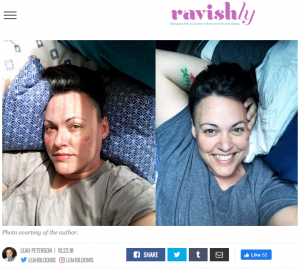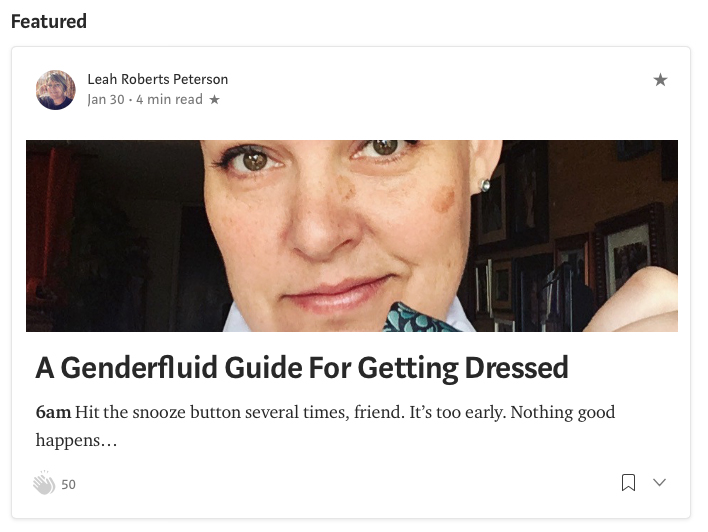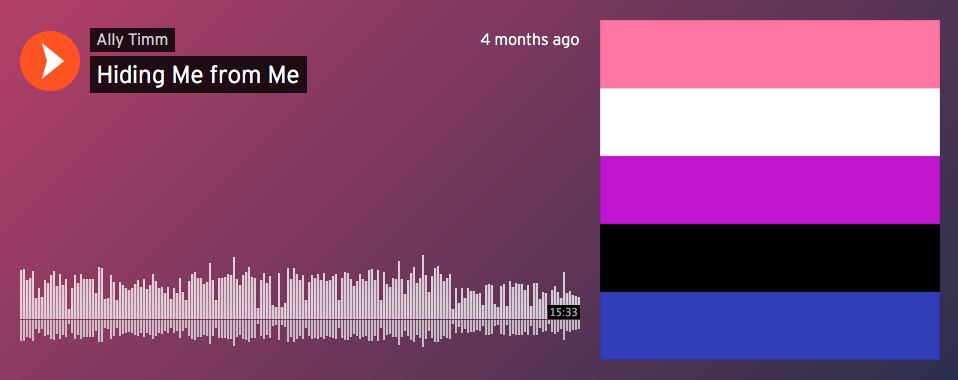Dear Sir Blooms,
I’ve traditionally only been sexually attracted to cis-male presenting folks. Up until a few years ago I identified as a gay male but as I’ve explored my gender identity I now identify as non-binary. With that, I’ve been exploring my sexuality. I feel like being a third gender gives me more flexibility on what I view as attractive. I’d like to explore a relationship with someone else who is non-binary as well and I would like the experience to be based on the person since gender isn’t necessarily involved.
But, here’s the thing. I’m not physically attracted to breasts or vaginas. At all. How do I have the experience I want while managing my mono attraction?
Unsure in Seattle
Hello Unsure,
I appreciate how you’re trying to grow and expand. We can’t really know what’s possible until we try, but we need to start by separating gender and attraction. Understanding on an even deeper level your own gender won’t automatically lead to being attracted to new genders.
Attraction is built on so many things, many of which we don’t have the ability to immediately change, meaning, they are below our ability to choose. There’s not a button to push to say that now I’m going to start being sexually attracted differently when those things haven’t been present or part of what’s been getting your engine started all these years.
Factors like smell, body stature, the energy they put out, voice timber – these things set chemistry clicking….or not. And sometimes, over time, these drivers can be replaced by new drivers, and that can feel good or be unsettling, and can involve your senses in ways you don’t overtly agree to. This happens all the time olfactorily, like the way you remember the cologne your high school boyfriend wore. If you smelled it on someone on the street, it would turn your head and you’d be flooded with memories, one of which could be feeling attraction. Could also be like the way you used to love the smell of clam chowder but you got sick that one Christmas and now clam chowder makes you feel nauseated. (Just me?) You can’t really control that body response any more than you can decide to be attracted to certain people.
Under that, on even deeper levels, are our own attachment styles, childhood trauma, what literally built our responses to things, which are drivers of our attraction. Some of those things can (and should!) be worked on to get to healthier places in relationship, especially where codependency is concerned, but that still probably won’t create an environment where you can dictate what will get you into a state of attraction.
A fun (and life-saving) opportunity of being alive at this specific time is the ability to modify our bodies to match our true selves. I’m curious if you imagine someone you are currently in sexual attraction with changing their body to include more substantial breasts, would they become less attractive to you? Or would your attraction shift to include larger breasts because a person you’re sexually attracted to now has them? Sometimes we think it’s a body type and sometimes we just haven’t met anyone with that body type that does it for us yet. As you’re exploring non-binary attraction, you may have an opportunity to feel all kinds of levels of attraction with lots of different folks. People have entire bodies, not just traditional “sexual parts,” where you can explore what feels good, fun, exciting, and pleasurable without ever interacting with specific parts you’re worried about.
One way to think of attraction is the same way we view other things our bodies are doing, and that all cycles back to survival. Not just survival of the species, but our own personal survival. And when trauma enters the scene, it can just fuck everything up, some of those wires get crossed, and it takes a lot of work to try and unlayer what’s happening, and even then, we need to have lots of compassion for ourselves around everything related to our sexuality and recognize when shame is present and learn to double down on the empathy and compassion. Untangling safety, attachment, trauma, biological functions, environmental factors, I mean. It’s super complex. So, let’s try to simplify.
Instead of feeling like you’re doing something “less-than” when you’re in relationship with someone you deeply love in ways other than sexual, I’d invite you to think of sexually intimate relationships as just one type of a significant and tender way to be with someone. Platonic loves are so important and vital to how we relationally connect and feel secure in our place in the world. In many cases, platonic loves are what endure when other types of relationships end. Also, romance can live separately from sex and be it’s own type of pleasure.
One of the biggest gifts we can give ourselves is to be present with pleasure. The more real we can be in those moments, the more pleasure we can receive, which creates an environment where pleasure abundance spills over to the people we’re intimate with. Trying to “make yourself” feel or respond a certain way will strip that experience of true pleasure and intimacy. If we can’t be ourselves, we can’t truly be intimate.
Play is often overlooked in pleasure and intimacy because we’ve been taught to go for the orgasm. If you put orgasms in their place, which is simply a part of pleasure and sexual intimacy, and move other kinds of touch, sensations, and pleasure to the front, you might be able to find sexual attraction in new places. Play is what we need more of! Playing with new toys, new situations, new people, and new ideas will all create an environment where new things are possible. What would it look like to invite a more playful vibe to your sexual intimacy and how might that open up new possibilities for you in attraction?
My wish for you is to allow yourself to simply be how you are, allow your feelings of disappointment around not being attracted to certain gender expressions exist as long as they need to, acknowledge them, but intentionally reach for where pleasure waits for you, and to create opportunities to play. You can have plenty of non-binary relationships and experience the vast world of differences within that space where your natural attraction lives. Maybe a good place to start would be to ask yourself, what dynamics and relationships make me feel pressured to try and make myself be different and what work can I do there?
Want to send me a note? You can do that here.





 Parts 1 & 2 of a podcast I did with
Parts 1 & 2 of a podcast I did with 





 I was asked by Ally Timm to share my thoughts and feelings about being genderfluid. You can listen to the
I was asked by Ally Timm to share my thoughts and feelings about being genderfluid. You can listen to the